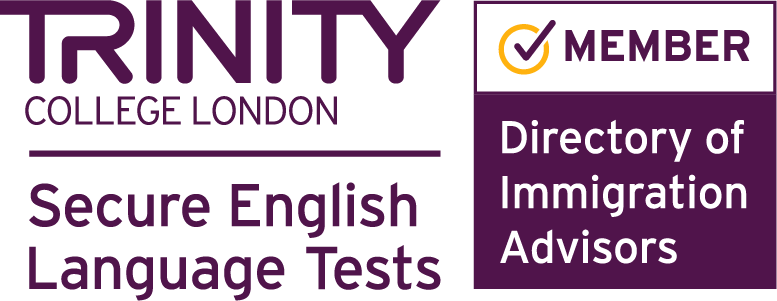Bringing your partner to the UK should be about building a future together, not stressing over paperwork and numbers.
Yet, the financial requirement for a spouse visa is often the most daunting part of the process.
The good news? With the right preparation, you can meet the rules and give your application the best chance of success
What is the Current Financial Requirement for Spouse Visa Applications?
As of 2025, you’ll need to show a minimum income of £29,000 per year (before tax) to meet the spouse visa financial requirement. This is a big jump from the old threshold of £18,600, which was raised in April 2024.
The good news is that the rule is straightforward, whether you’re applying with or without dependent children, the same income threshold applies. Knowing the exact figure gives you a clear target to plan around and helps avoid any surprises in your UK spouse visa application.
The reason the UK government increased the minimum income threshold is simple: they want to make sure partners coming to the UK can be supported financially, without relying on public funds.
At one stage, there were plans to raise the spouse visa financial requirement even higher, up to £38,700. For now, though, the current Labour government has put that increase on hold while the Migration Advisory Committee reviews the immigration rules.
This means the threshold remains at £29,000, giving applicants a clearer picture of what’s required in 2025.
Who Needs to Meet the Financial Requirement?
Meeting the spouse visa financial requirement isn’t optional, for most couples, it’s a key part of the application process. It applies when the sponsor, usually a British or Irish citizen, or someone with settled status such as indefinite leave to remain or permanent residence, is bringing their partner to the UK.
In most cases, you’ll need to show that your household income meets the minimum income threshold to satisfy the financial requirement.
Are There Any Exceptions?
Not every spouse visa applicant has to meet the standard income rules. You may be exempt if:
- Your UK partner receives certain disability or income-related benefits (such as Personal Independence Payment or Disability Living Allowance).
- There are exceptional circumstances that create “insurmountable obstacles” to family life outside the UK.
- Human rights considerations apply, for example, under Article 8 of the European Convention on Human Rights (right to family life).
What Income Sources Count Towards the Financial Requirement?
Not every type of income will help you meet the spouse visa financial requirement — and this is one of the areas where many applicants make mistakes. The Home Office only accepts certain forms of income, and each has its own rules on how it can be used as financial evidence.
Employment Income (Salaried or Non-Salaried)
If you’re employed, your income can usually be counted, provided it comes from a genuine role and is fully documented. This may include:
- Salary from permanent employment – your fixed wages as shown on your employment contract and regular payslips.
- Guaranteed bonuses or guaranteed income payments – ongoing, contractual payments that are part of your gross annual salary.
- Regular overtime – additional income that is consistent and backed up by payslips and corresponding bank statements.
- Commission payments – variable income that is frequent and evidenced over time (e.g. sales commission).
Self-Employment Income
If you’re self-employed, your income can also count, though the rules are stricter and require more paperwork. Acceptable examples include:
- Profits from sole trading or partnerships – declared in your HMRC tax returns.
- Director’s salary and dividends – if you run your own limited company.
- Multiple self-employed activities – for example, if you run more than one business or freelance alongside other work.
Other Acceptable Sources
In addition to employment, other forms of income can help meet the minimum income requirement, such as:
- Property Rental income – from property you let out, supported by tenancy agreements and personal bank statements.
- Dividend income – from shares or other investments.
- Savings interest – from a regulated financial institution such as a UK or overseas bank.
- Cash savings – savings held for at least six months in a regulated account can be used alone or combined with other income.
- Pension income – from a state, workplace, or private pension (including overseas pension authorities).
What Doesn’t Count
The Home Office will not accept:
- Income from illegal activities.
- One-off payments or windfalls (e.g. inheritance or a lottery win).
- Most benefits or tax credits (unless you’re exempt under specific disability or income-related benefits).
- Loans or borrowed money.
- Assets that cannot be easily converted into a regular income stream.
How to Calculate Your Income for the Spouse Visa
One of the most common reasons spouse visa applications are refused is because the income was calculated incorrectly. The Home Office has strict rules on how they work out your earnings, and even small mistakes can make a big difference.
If you’re in salaried employment, they’ll usually assess your current job. To qualify, you’ll need to have been with the same employer for at least six months and earn a gross annual income of £29,000 or more. If you’ve recently changed jobs, you can rely on your previous 12 months of earnings instead, as long as your payslips and bank statements show that you met the sufficient income threshold up to the date of application.
For those who are self-employed, the rules are more detailed. Your income is assessed against your most recent complete financial year, or in some cases, the average across two years. You’ll also need strong financial evidence, such as accountant-prepared accounts, HMRC tax documents, and bank statements showing your business income.
It’s also possible to combine different income sources to reach the threshold. For example, you might rely on a mixture of employment income, non-employment income and rental income, or combine your UK earnings with your partner’s overseas salary if it will continue in the UK.
Essential Documentation for the Financial Requirement
Even if you meet the financial requirement, your spouse visa can still be refused if your paperwork isn’t in order.
The Home Office is strict about the documents they’ll accept, so it’s crucial to provide the right evidence in the right format.
Employment Documentation
- Employment contract showing salary details
- Payslips for the required period (minimum 6 months)
- Bank statements showing salary payments
- P60 and P45 forms as applicable
- Letter from employer confirming employment details
Self-Employment Documentation
- SA302 tax calculations for relevant tax years
- Tax year overviews from HMRC
- Company accounts (for limited companies)
- Accountant’s letter confirming income figures
- Bank statements showing business income
Additional Evidence
- Bank statements (personal accounts for 6 months minimum)
- Rental agreements and income evidence (if applicable)
- Investment statements and dividend certificates
- Marriage certificate or civil partnership certificate
Common Pitfalls When Meeting the Financial Requirement
Meeting the spouse visa financial requirements on paper doesn’t always guarantee success. Many applications are refused because of small but costly mistakes in the way the rules are applied. The most common issues tend to fall into three areas: documentation, timing, and calculation.
Documentation Mistakes
Missing payslips, incomplete bank statements, or inconsistencies between documents can raise red flags with the Home Office. Even something as simple as providing electronic statements without a bank certification letter can result in refusal.
Timing Problems
Recent job changes can complicate matters, as the Home Office may not accept your new salary straight away. Seasonal or irregular work makes it harder to show a consistent income, while self-employed sponsors often face difficulties if their business structure changes from one financial year to the next.
Calculation Errors
Using net instead of gross annual income, miscalculating multi-year averages, or failing to properly convert foreign earnings are common mistakes. Errors like these can undo an otherwise strong application, even when your sponsor’s income is high enough.
What Happens if You Don’t Meet the Financial Requirement?
If you don’t meet the financial requirement, your spouse visa application will usually be refused. That sounds daunting, but refusal isn’t always the end of the road, you still have a few possible options.
Administrative Review
If you think the Home Office made a mistake when assessing your financial evidence, you can ask for an administrative review. This must be requested within 28 days, and it’s only useful if the error was on their side, not yours.
Fresh Application
In most cases, couples choose to reapply once they meet the minimum income threshold. This means submitting a brand new spouse visa application and paying the full fee again.
Human Rights Challenge
In rare and exceptional situations, you may be able to challenge a refusal on human rights grounds — usually under Article 8 (the right to family life). These cases are complex, can take time, and are rarely successful without strong legal support.
Planning Ahead: Meeting the Financial Requirement
If you don’t yet meet the spouse visa financial requirements, it doesn’t mean your application is out of reach. With some planning, there are several positive steps you can take:
- Build up your income – whether that means moving to a higher-paid role, taking on regular overtime, making the most of bonus payments, or creating an additional income stream. In some cases, your proposed civil partner’s overseas income can also be included if it will continue in the UK.
- Keep your paperwork consistent – the Home Office usually expects at least six months with the same employer, backed by payslips, complete bank statements, and an employer’s letter confirming your role and salary. Keeping these documents organised now can save stress later.
- Get professional support if you need it – an immigration solicitor can review your finances, advise on the best calculation method, make sure your evidence matches Home Office requirements, and guide you on the right timing for your application. Many couples find this takes away the uncertainty and gives them peace of mind.
Remember: not meeting the minimum income threshold today doesn’t mean it’s impossible tomorrow. With the right preparation, most couples find the financial requirement is more achievable than they first thought.
Recent Changes and Future Outlook
One of the hardest parts of meeting the spouse visa financial requirement is that the rules don’t stand still. In April 2024, the minimum income threshold jumped from £18,600 to £29,000, a rise of more than 50% in a single change.
There were even plans to increase it again to £38,700, but for now, the government has paused those proposals. Instead, the Migration Advisory Committee is carrying out a review. That means the current figure of £29,000 applies in 2025, but it’s difficult to know how long it will stay that way.
The review is expected to explore:
- Whether the current threshold is fair.
- The impact of the rules on families and communities.
- Alternative ways of assessing financial support.
- Regional variations in living costs.
For couples, this uncertainty can feel unsettling. The financial requirements for spouse visas can change quickly, so it’s important to keep up to date and to plan ahead as best you can under the current rules.
Ready to Apply? Make Sure Your Spouse Visa Stands the Best Chance of Success
The financial requirement for a UK spouse visa is one of the toughest parts of the immigration process. With the threshold now set at £29,000, success depends on careful planning, clear calculations, and watertight documentation.
Whether your income comes from employment, self-employment, or a mix of sources, getting the evidence right is just as important as meeting the numbers. A small mistake can cost time, money, and, most importantly, delay your chance to live together in the UK.
That’s why many couples choose to get professional advice early. Working with a solicitor who specialises in immigration law means your finances are reviewed carefully, the best route for your application is explained, and your documents are checked against Home Office standards. Having that guidance can take away the stress and give you confidence that your case is as strong as possible.
And remember: the financial requirement is just one piece of the puzzle. A family visa application also requires relationship evidence, English language proficiency, and a compelling case for your life together.
If you’re ready to bring your partner to the UK, don’t leave the outcome to chance. Contact Intime Immigration today and let our experts help you build the strongest possible spouse visa application, so you can focus on what matters most: starting your life together.





